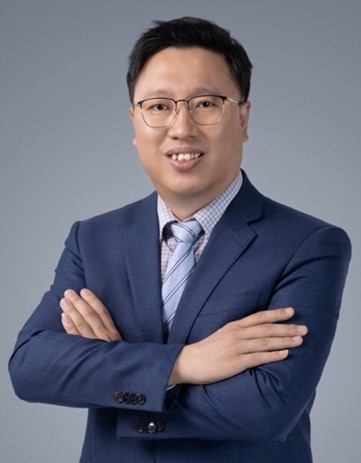导师介绍
钟超 长聘副教授

钟 超 博士
长聘副教授、博士生导师、国家海外高层次青年人才
北京大学JDB电子官方网站免疫学系
国家卫健委医学免疫学重点实验室
免疫相关重大疾病防治中心
研究方向:组织区域免疫调控机制与免疫相关重大疾病防治策略
办公室:医学科技楼北楼B702-3
E-mail:zhongc@hsc.pku.edu.cn
个人简介:
钟超 博士,北京大学长聘副教授,博士生导师,国家海外高层次青年人才,JDB电子官方网站免疫学系副主任。主要研究方向,组织区域免疫调控机制及免疫相关重大疾病防治策略,以期为感染、炎症、肿瘤等临床疾病的治疗提供新理论。代表性工作发表于Immunity (2020、2014)、Nature Immunology (2016)、Developmental Cell (2024)、Nature Metabolism (2023、2022)、Nature Communications (2023) 等一流学术期刊。主持国家自然科学基金区域创新联合基金重点项目、重大研究计划、面上项目,科技部重点研发计划子课题等多项国家级基金,及北京市自然科学基金重点项目、面上项目等省市级基金。担任中国免疫学会自身免疫病分会委员、生殖免疫分会委员,中国生物物理学会肠道菌群分会副秘书长,中国生理学会肠道微生态专业委员会委员等。
研究方向:
组织器官区域免疫稳态是机体健康的重要保障。区域免疫失衡引起的组织炎症是造成感染、肿瘤、过敏、自身免疫病等免疫相关重大疾病及动脉粥状硬化、非酒精性脂肪肝、帕金森病等慢性非感染性疾病的重要原因,然而其中关键调控机制仍待进一步阐明。
本团队从重大疾病临床诊治中凝练出的迫切科学问题入手,结合基因编辑动物模型、多色流式、多重免疫组织荧光、单细胞技术、空间转录组、高通量多组学、代谢组学等前沿技术手段,深入阐明组织区域免疫调控的关键分子细胞机制及其与免疫相关重大疾病发生发展间的联系,以期为临床诊治提供新策略、新靶点。具体研究方向包括:
1、解析生理、病理情况下肠道、肺、皮肤、子宫等组织区域免疫调控的关键机制;
2、探讨组织微生态与区域免疫互作对组织稳态的调节作用及分子机制;
3、基于组织区域免疫调节的关键细胞及分子开发新的临床疾病干预策略。
基金来源:
2024.7 – 2028.6 北京市自然科学基金重点专题,课题负责人
2024.1 – 2027.12 国家自然科学基金区域创新发展联合基金重点项目,主持
2023.1 – 2025.12 深圳市基础研究专项重点项目,参与
2022.12 – 2027.11 国家重点研发计划“发育编程及其代谢调节”,课题骨干
2022.12 – 2027.11 国家重点研发计划“干细胞研究与器官修复”,课题负责人
2022.1 – 2025.12 国家自然科学基金面上项目,主持
2019.1 – 2021.12 国家自然科学基金重大研究计划培育项目,主持
2018.1 – 2021.12 国家自然科学基金面上项目,主持
2018.1 – 2020.12 北京市自然科学基金面上项目,主持
2018.1 – 2020.12 国家海外高层次青年人才,主持
2017.1 – 2019.12 北京大学引进人才启动经费,主持
代表成果:
1. Ren G#, Zhang Y#, Liu J#, Cheng W#, Wu D, Han M, Zeng Y, Zhao X, Hu L, Zeng M, Gurram RK, Hu X, Zhou B, Hou Z, Zhu J, Jin W*, Zhong C*. GATA3 exerts unique regulatory roles in cutaneous innate lymphoid cells to promote hair follicle recycling. Developmental Cell. 2024 May; S1534-5807(24)00268-5. doi: 10.1016/j.devcel.2024.04.015.
2. Wu D#, Li Z#, Zhang Y#, Zhang Y#, Ren G#, Zeng Y, Liu H, Guan W, Zhao X, Li P, Hu L, Hou Z, Gong J, Li J, Jin W, Hu Z, Jiang C, Li H, Zhong C. Proline uptake promotes activation of lymphoid tissue inducer cells to maintain gut homeostasis. Nature Metabolism. 2023 Nov; 5(11):1953-1968. doi: 10.1038/s42255-023-00908-6.
3. Han M#, Hu L#, Wu D#, Zhang Y, Li P, Zhao X, Zeng Y, Ren G, Hou Z, Pang Y, Zhao T, Zhong C. IL-21R-STAT3 signalling initiates a differentiation program in uterine tissue-resident NK cells to support pregnancy. Nature Communications. 2023 Nov; 14(1):7109. doi: 10.1038/s41467-023-42990-0.
4. Hu L#, Han M#, Deng Y, Gong J, Hou Z, Zeng Y, Zhang Y, He J, Zhong C. Genetic distinction between functional tissue-resident and conventional natural killer cells. iScience. 2023 Jun; 26(7):107187. doi: 10.1016/j.isci.2023.107187.
5. Zhang Y#, Hu L#, Ren G, Zeng Y, Zhao X, Zhong C. Distinct regulatory machineries underlying divergent chromatin landscapes distinguish innate lymphoid cells from T helper cells. Frontiers in Immunology, 2023 Dec; 14:1271879. doi: 10.3389/fimmu.2023.1271879.
6. Wu D, # Hu L#, Han M#, Deng Y, Zhang Y, Ren G, Zhao X, Li Z, Li P, Zhang Y, Chen S, Li J, Shi Y, Wang P, Zhong C. PD-1 signaling facilitates LTi activation through restraining fatty acid oxidation. Nature Metabolism. 2022 Jul; 4(7):867-882. doi: 10.1038/s42255-022-00595-9.
7. Hu L#, Zhao X, Li P, Zeng Y, Zhang Y, Shen Y, Wang Y, Lai B*, Zhong C*. Proximal and distal regions of pathogenic Th17 related chromatin loci are sequentially accessible during pathogenicity of Th17. Frontiers in Immunology. 2022 April; 13:864314. doi: 10.3389/fimmu.2022.864314.
8. Wu X#, Zhao X#, Xiong Y, Zheng M, Zhong C*, Zhou Y*. Deciphering cell type-specific gene expression signatures of cardiac diseases through reconstruction of bulk transcriptomes. Frontiers in Cell and Developmental Biology. 2022 February; 10:792774. doi: 10.3389/fcell.2022.792774.
9. Zhong C#*, Zheng M#, Cui K#, Martins AJ#, Hu G, Li D, Tessarollo L, Kozlov S, Keller JR, Tsang JS, Zhao K, Zhu J*. Differential Expression of the Transcription Factor GATA3 Specifies Lineage and Functions of Innate Lymphoid Cells. Immunity. 2020 Jan; 52(1):83-95.e4. doi: 10.1016/j.immuni.2019.12.001.
10. Zhong C, Cui K, Wilhelm C, Hu G, Mao K, Belkaid Y, Zhao K, Zhu J. Group 3 innate lymphoid cells continuously require the transcription factor GATA-3 after commitment. Nature Immunology. 2016 Feb; 17(2):169-78. doi: 10.1038/ni.3318.
11. Yagi R#, Zhong C#, Northrup DL#, Yu F, Bouladoux N, Spencer S, Hu G, Barron L, Sharma S, Nakayama T, Belkaid Y, Zhao K, Zhu J. The transcription factor GATA3 is critical for the development of all IL-7Rα-expressing innate lymphoid cells. Immunity. 2014 Mar; 40(3):378-88. doi: 10.1016/j.immuni.2014.01.012.
12. Zhong C, Li C, Wang X, Toyoda T, Gao G, Fan Z. Granzyme K inhibits replication of influenza virus through cleaving the nuclear transport complex importin α1/β dimer of infected host cells. Cell Death&Differentiation. 2012 May; 19(5):882-90. doi: 10.1038/cdd.2011.178.
(如有意申请本实验室研究生、博士后,请发送简历及证明材料至zhongc@hsc.pku.edu.cn)

